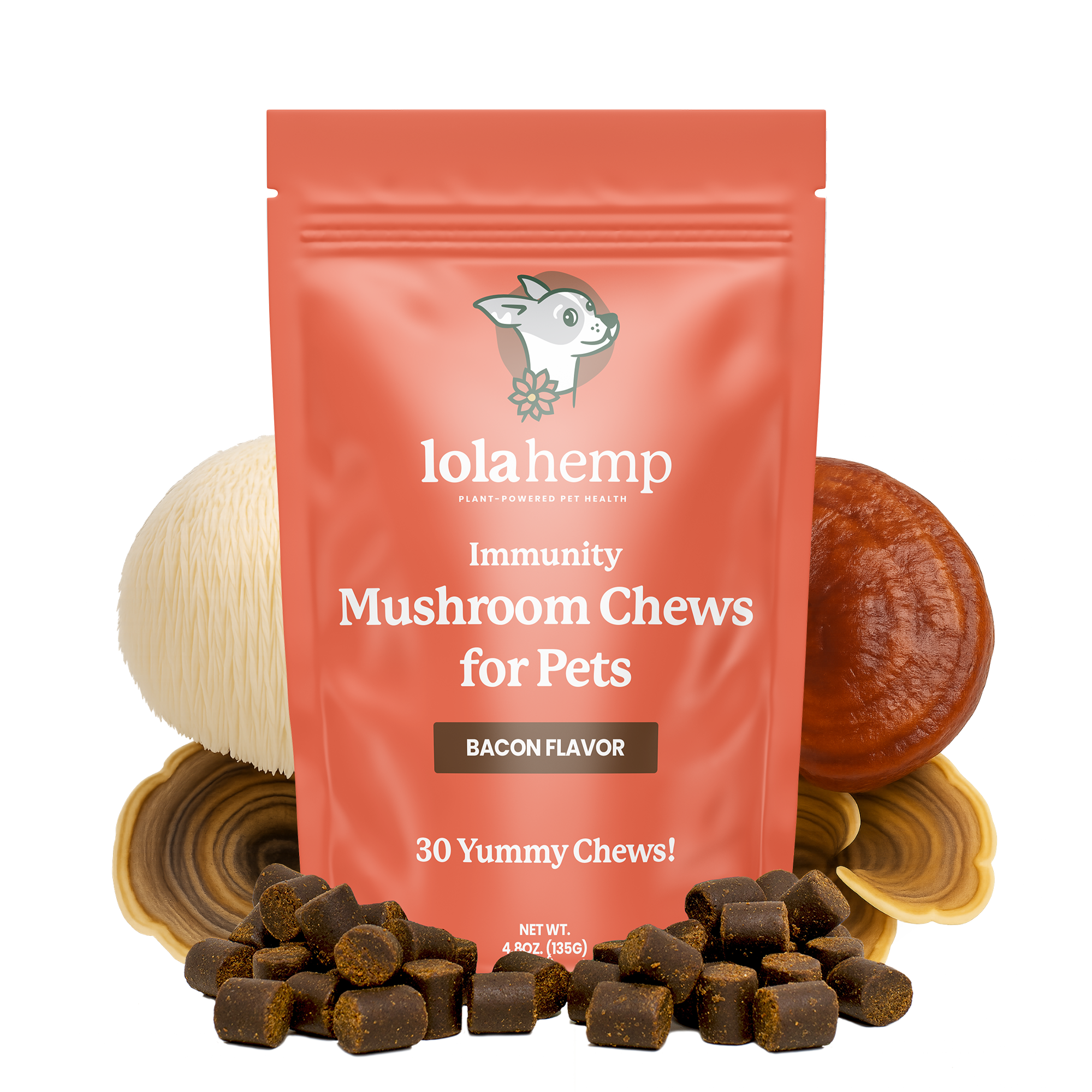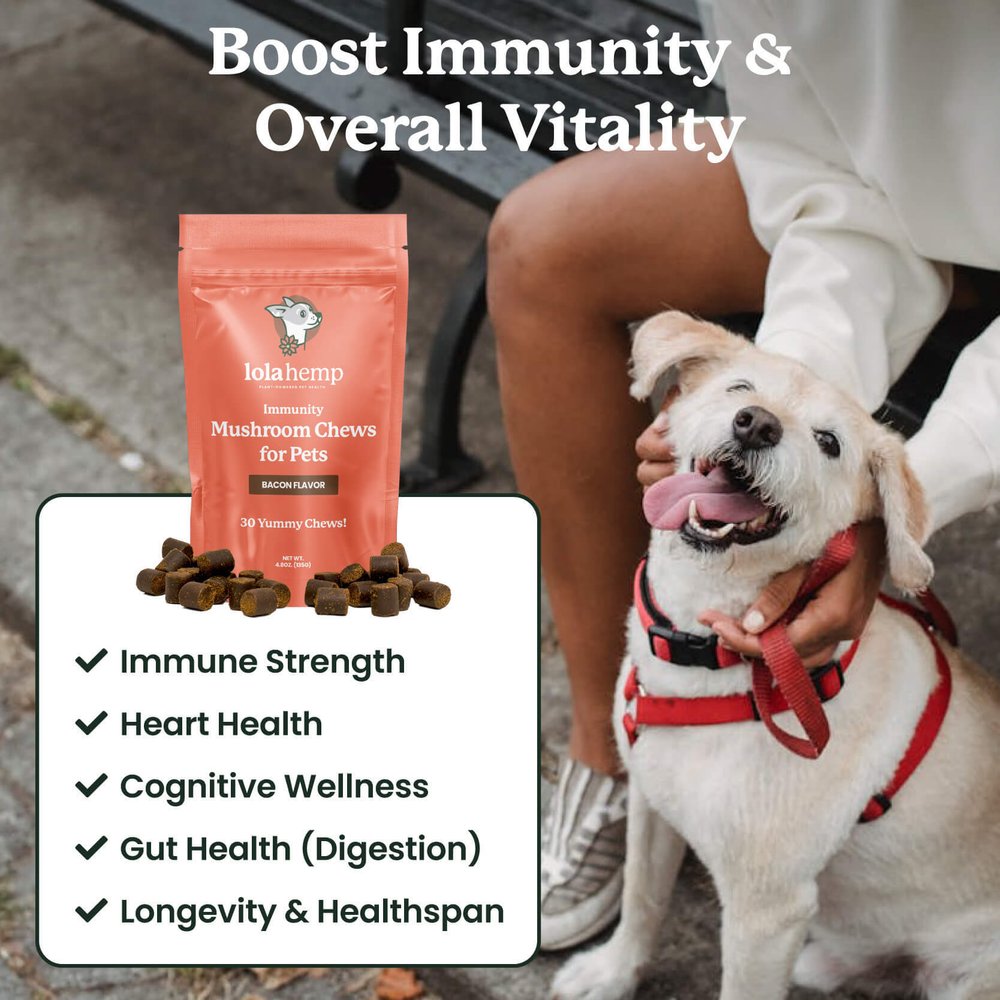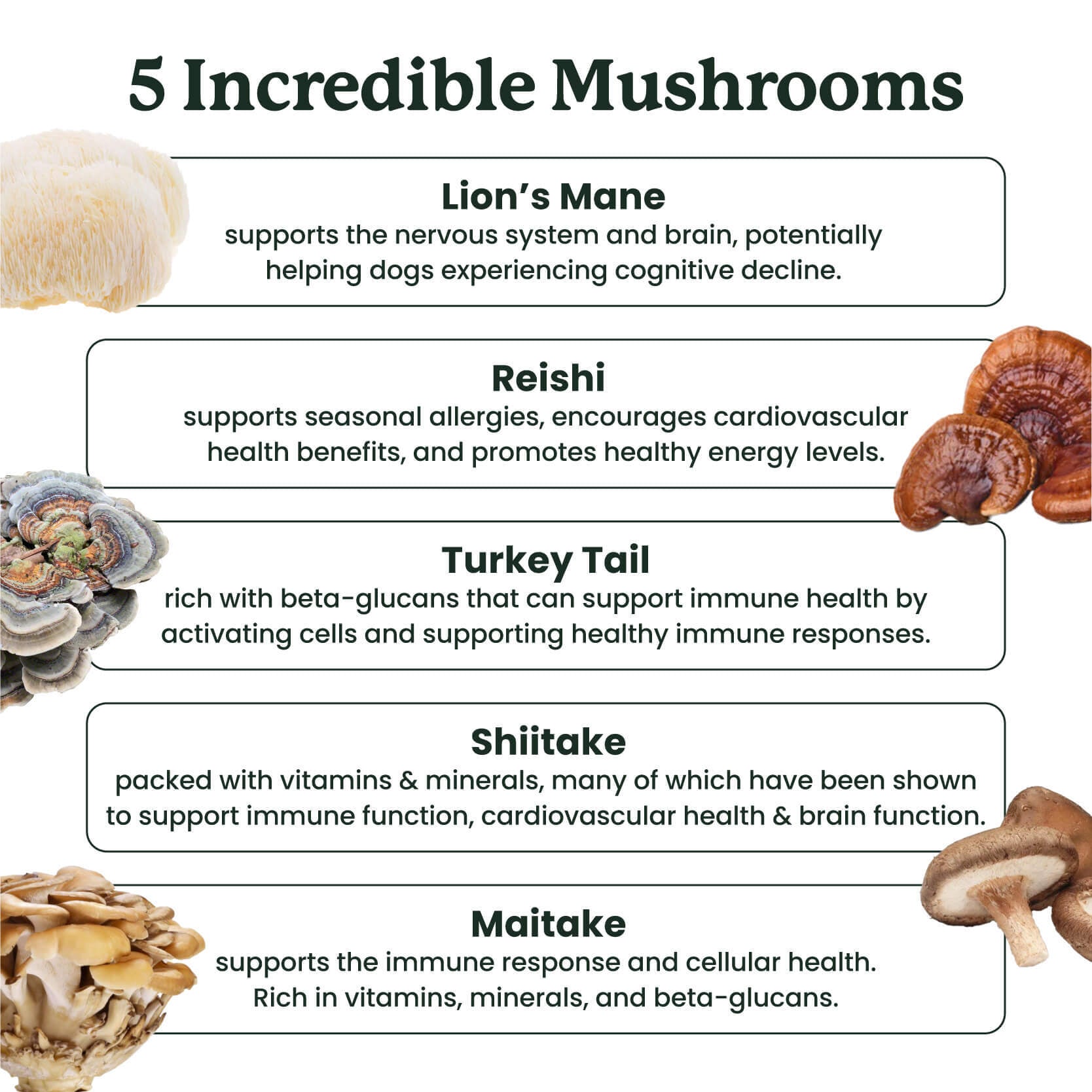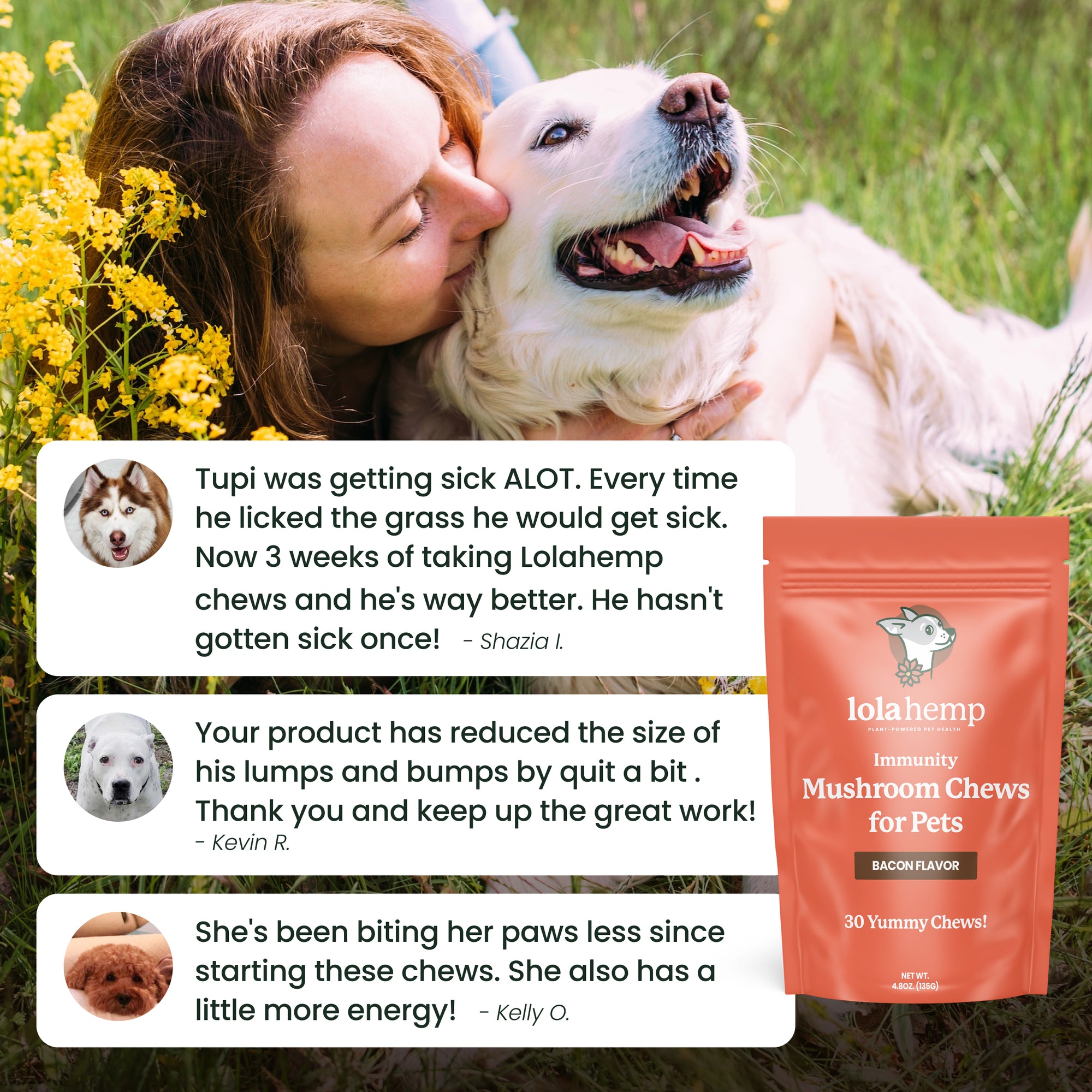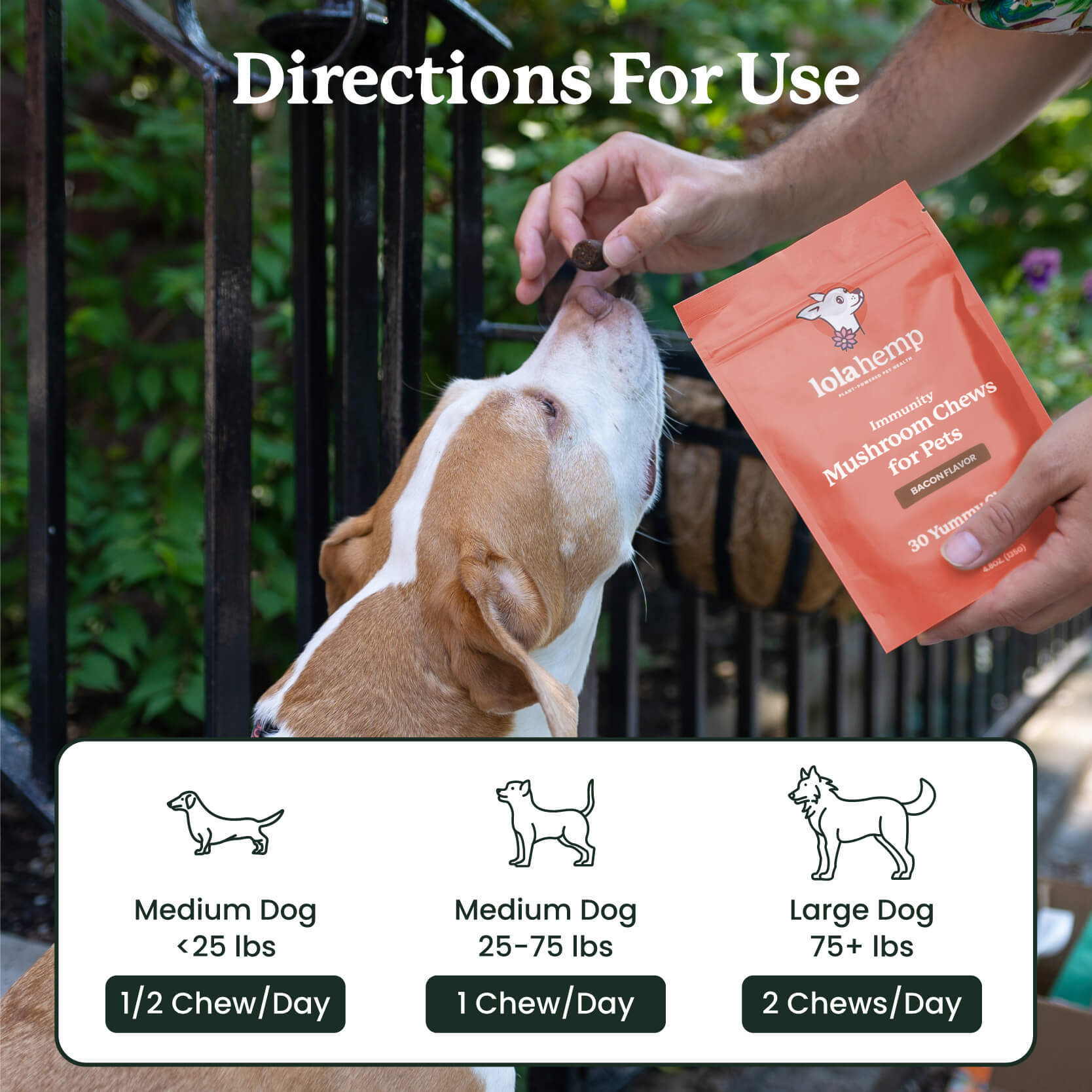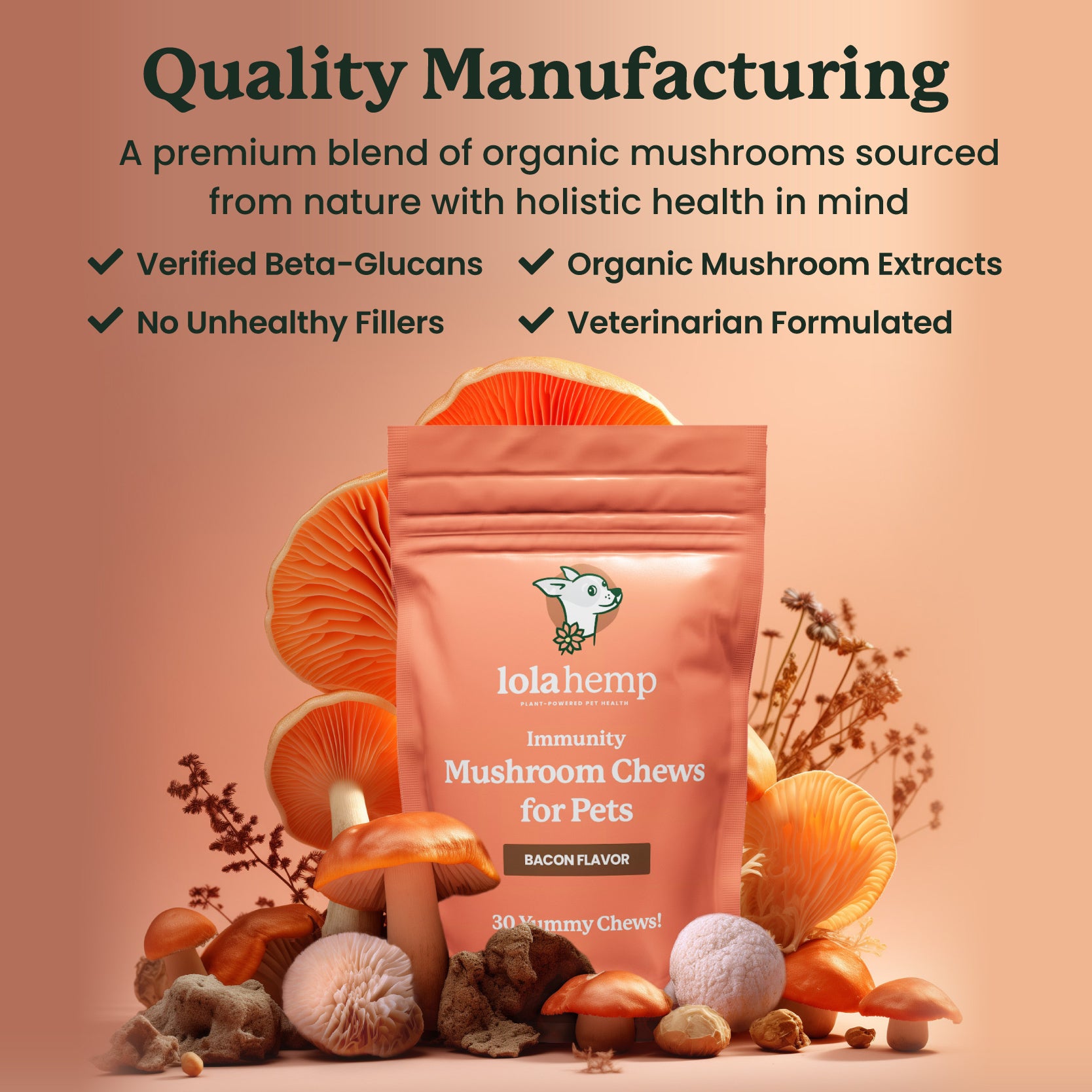In the world of natural remedies and holistic health, there is a powerful player that has been quietly making waves — the Reishi mushroom for dogs.
It's important not to simply give dogs Reishi in its natural form, but rather incorporate the use of mushroom supplements containing Reishi for your dog. Ensure that the mushroom product you're giving your pet is formulated specifically for dogs.
The Benefits of Reishi Mushrooms for Dogs
Known scientifically as Ganoderma lucidum, this unusual fungus has been revered in Traditional Chinese Medicine for centuries due to its myriad of health benefits.
Moreover, an expanding body of research suggests that our canine companions can also benefit from Reishi. As a result, Reishi mushrooms for dogs are becoming more popular.

Benefits of Reishi Mushrooms for Dogs
1. Immune System SupportReishi mushrooms may help enhance the immune system's function, potentially assisting dogs in fighting off immune issues. |
2. Anti-Inflammatory EffectsThey have anti-inflammatory properties that could help reduce inflammation, benefiting dogs with conditions like arthritis. |
3. Antioxidant PropertiesReishi mushrooms contain antioxidants that can neutralize free radicals, supporting overall health and potentially slowing aging. |
4. Stress and Anxiety ReductionThese mushrooms may have adaptogenic effects that help manage stress and anxiety, which could be useful for dogs with separation anxiety. |
5. Support for Liver HealthReishi mushrooms might support liver health by aiding in detoxification and enhancing liver function. |
6. Enhanced Cardiovascular HealthThey may support cardiovascular health by improving circulation and reducing cholesterol levels, although this is less documented in dogs. |
7. Dog-Safe, Delicious OptionsLolahemp Immunity Mushroom Chews contain Reishi, Lion's Mane, Turkey Tail, Shiitake, and Maitake. They're also bacon-flavored so your dog won't be able to get enough of them! |
Consulting with Your Vet
Before introducing any new supplement into your dog’s diet, it’s always a good idea to consult with your vet. They can provide guidance based on your dog’s specific health needs and conditions. Remember, while Reishi mushrooms offer potential health benefits, they should not replace veterinary care.

Precautions and Considerations
While the potential health benefits of Reishi mushrooms for dogs are impressive, it is important to approach this natural supplement with caution. Like any new addition to your dog’s diet, there are precautions and considerations to remember.
Potential Adverse Reactions
Although Reishi mushrooms are generally considered safe, some dogs might experience digestive upset, especially when first introduced to the supplement. Symptoms can include diarrhea, vomiting, or changes in appetite.
Moreover, due to their immune-modulating effects, Reishi mushrooms could potentially interfere with certain medications, particularly those that suppress the immune system. If your dog is currently on any medication, it is crucial to consult with your vet before introducing Reishi mushrooms into their diet.
Conclusion
Reishi mushrooms are a powerful natural supplement that may offer a range of health benefits for dogs, from immune system support to anti-inflammatory and antioxidant properties. As with any supplement, it's essential to use high-quality, dog-safe products and follow proper dosing guidelines.
While research on medicinal mushrooms for pets is still emerging, many pet owners and holistic veterinarians have found Reishi mushrooms to be a valuable addition to canine wellness routines. If you’re considering adding Reishi to your dog’s diet, consult your veterinarian to ensure it's the right choice for their specific health needs.
By making informed decisions and prioritizing your dog’s safety, you can help support their long-term health and vitality with the natural benefits of Reishi mushrooms.
Frequently Asked Questions about Reishi Mushrooms for Dogs
Are Reishi mushrooms safe for dogs?
Yes, Reishi mushrooms are generally safe for dogs when used in the correct dosage and given as a pet-formulated supplement. Always consult your veterinarian first.
What are the main benefits of Reishi mushrooms for dogs?
Reishi mushrooms may support immune health, reduce inflammation, provide antioxidants, and promote calmness and overall vitality in dogs.
Can Reishi mushrooms help dogs with allergies or arthritis?
Reishi’s anti-inflammatory and immune-balancing effects may help dogs with allergies or arthritis by reducing symptoms and supporting overall wellness.
How should I give my dog Reishi mushrooms?
Only use Reishi mushroom supplements made specifically for pets. Follow the dosage instructions on the product label or as directed by your vet.
Are there any side effects of Reishi mushrooms for dogs?
Some dogs may experience mild digestive upset when first introduced to Reishi. If symptoms persist or worsen, discontinue use and consult your veterinarian.

